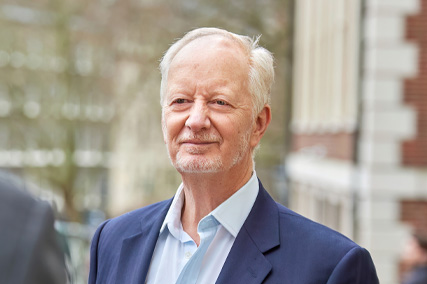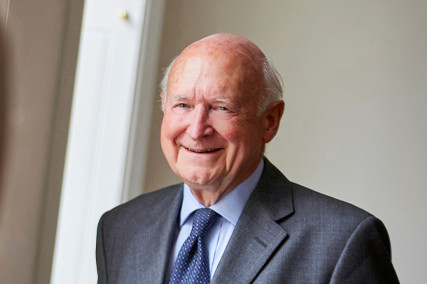Members of Chambers are available to conduct arbitrations, mediations, expert determinations or early neutral evaluations on subjects within their specialist practice areas. These are different forms of alternative dispute resolution (“ADR”) which are briefly explained below
Arbitration is a form of litigation in which the parties present their evidence and submissions and then the arbitrator reaches a decision which is binding and only subject to appeal on a point of law. Arbitration is different from mediation in which a trained neutral person endeavours to guide the parties to find a point between their starting positions at which they are willing to reach agreement.
Arbitration may arise:
- out of an agreement containing a clause committing the parties to using arbitration to resolve any dispute that may derive from the agreement; or
- as an alternative to litigation in a court or tribunal to enforce a right.
Examples of agreements which may include an arbitration clause include:
- an agreement to sell land under threat of compulsory purchase where the landowner is willing in principle to sell but the price has not be agreed;
- a development agreement where a dispute has arisen as to whether one of the parties has adhered to the requirements of the agreement; or
- a s.106 agreement where a dispute has arisen as to whether the landowner has fulfilled the obligations of the agreement.
Examples of using arbitration as an alternative to pursuing a claim in a court or tribunal include claims for compensation for:
- the compulsory purchase of land;
- planning decisions such as revocation or modification of planning permissions;
- the exercise of powers under the Highways Act 1959;
- the exercise of powers relating to water supply, sewage disposal, land drainage, pollution control or public health;
- the grant of a necessary wayleave for an electricity line.
Arbitration is a form of private litigation in which the parties confer upon the arbitrator the power to determine a dispute. The Upper Tribunal (Lands Chamber) has statutory power to act as an arbitrator, but for some cases and for some parties, there may be advantages in private arbitration which may include:
- it may be possible to obtain a decision more quickly than can be achieved through court or tribunal litigation;
- the procedures of arbitration can be more flexible than court or tribunal litigation;
- parties are able to choose who will act as the arbitrator, rather than having the tribunal presented to them;
- arbitration is conducted in private, so the proceedings and the decision remain confidential unless the parties agree otherwise;
- the parties have control over how the arbitration is to be conducted and can agree the procedures in advance;
- the parties can choose the venue;
- arbitration can be cheaper than court or tribunal litigation;
- decisions are legally binding and enforceable in court.
The conduct of arbitrations is governed by the Arbitration Act 1996 which is not a complete code of the law of arbitration but provides for limited supervision by the courts, appeals on points of law and enforcement of awards. An arbitrator is under a duty to act fairly and impartially, giving each party a reasonable opportunity of putting his/her case and dealing with that of his opponent. If the parties wish, an arbitrator is able to take the initiative in ascertaining the facts and the law.
The parties may choose whether to appoint a single arbitrator or a panel of three arbitrators. It is also possible for the arbitrator to have assistance from an assessor, usually an expert in a particular discipline, such as valuation.
An arbitration can be conducted in accordance with a published set of procedural rules (for example the UNCITRAL Rules) or, if parties prefer, rules tailored to their particular case by way of case-specific directions from the arbitrator. Using published rules may provide more certainty from the outset about how the arbitration is going to be conducted but may have less flexibility to adapt the procedure to suit the parties.
Parties are able to agree how their dispute should be dealt with and how formal or informal the process should be. Hearings can be held, ranging from short hearings to make oral submissions on points of law through to full hearings of evidence and submissions akin to litigation. Alternatively, arbitrations can be conducted on a documents-only basis.
Once an arbitration agreement is in place, in the event of a dispute requiring resolution, the arbitration process would be commenced by one of the parties giving notice to the other. The parties can choose the questions to be referred to the arbitrator which may be a particular point of law or principle or may encompass all issues in the dispute including quantum.
The method of resolving disputes through a process broadly known as ‘mediation' is increasingly being used as a way of avoid traditional court or tribunal-based litigation, with all of the cost and delay that such a process entails. FTB supports the development of this trend and is able to offer a number of trained mediators, who are also experienced and highly regarded practitioners in their own right.
Mediation itself should be distinguished from arbitration or other forms of adjudication. It is essentially a long-established and proven method of negotiating where two (or more) parties, who have ceased to be able to resolve their own differences, are assisted in so doing by a mediator who has received training in the various techniques and practices required to achieve a consensus.
Fundamental elements of a modern mediation will include:
- Voluntary course of action – invariably sought by the parties themselves
- Costs of the mediation established from the outset
- Facilitation of negotiations by a qualified neutral mediator(s)
- Series of informal discussions both in open forum & in private with mediator(s)
- All discussions confidential within the mediation, unless/until agreed otherwise
- Complete flexibility as to process and the contents of any settlement
- No binding settlement unless /until explicitly agreed & executed by the parties
- Settlement agreement sets out all terms upon which conclusion reached
FTB has a Mediation Group and dedicated mediation facilities on site. FTB mediators cover a wide range of work, including:
- Planning
- Environmental
- Compulsory Purchase & Compensation
- Licensing
- Gambling Disputes
- Administrative Law
- Contract Law
- Landlord & Tenant
- Disciplinary
- Employment
- Litigation
- Local Government
- Education
Expert determination is a process by which a person selected for his/her expertise in the subject matter of the dispute exercises his/her expertise to determine the dispute. It is similar to arbitration in that the parties may make representations to the expert (usually, but not necessarily in writing) who will reach a decision which is binding on the parties, but it differs from arbitration in that the expert is required to apply his/her expertise rather than reaching a decision based simply upon the evidence adduced by the parties. Members of Chambers are available to act as experts where the dispute is either just a question of law or both law and fact.
Members of Chambers are available to act as experts within their specialist practice areas.
Early neutral evaluation is a process by which a suitably qualified person reviews the positions of the parties and offers a prediction of the outcome if the dispute were to proceed to a Tribunal hearing. It is usually undertaken after the parties have exchanged pleadings or exchanged expert evidence. It differs from mediation in that it is not seeking common ground but rather the likely decision of the court or tribunal.
Members of Chambers are available to conduct early neutral evaluation of cases.
03
Oct' 23Guy Roots KC, Craig Howell Williams KC and Meyric Lewis KC Appointed to the RICS Panel of Dispute Resolvers for Compulsory Purchase Disputes
The Alternative Dispute Resolution (ADR) for Compulsory Purchase Disputes is a new RICS service. It is designed to help resolve the full ambit of disputes that can arise between acquiring authorities and land/property owners.
Arbitrators & Mediators
Craig Howell Williams KC
MediatorCall: 1983 | Silk: 2008
David Matthias KC
Arbitrator and MediatorCall: 1980 | Silk: 2006
Jeremy Phillips KC
MediatorCall: 2004 | Silk: 2018
Richard Glover KC
MediatorCall: 1984 | Silk: 2009
Mark Hill KC
MediatorCall: 1987 | Silk: 2009
Richard Honey KC
ArbitratorCall: 2003 | Silk: 2021
Kate Olley
MediatorCall: 1999












